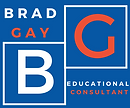Seven tips for interviews
- Brad Gay

- Jun 28, 2018
- 3 min read

1. KISS Principle (Keep it short simple)
“We have two ears and one mouth so that we can listen twice as much as we speak.” Epictetus
Be careful not to over talk your answers or make your replies too complex.
Take your time and think before answering. Pause, breathe. Stick to the topic. Try chunking the question.
Eg. Tell me about your leadership style?
“That’s an interesting question. I would summarise my style in three main areas. Firstly, I’m affiliative...secondly, I .... (Manageable chunks make it easier for their interviewer to take on.)
2. Main points
What are the main points in the question?
What do the panel really want to know? How can I tease this out of them to give the best answer?
Eg Tell us about your feelings towards Innovative Learning Environments?
This is a tough question. The panel may be against ILE’s or totally for them. Saying outright, “Yes, I think they are excellent….” leaves you with a 50% chance of getting it wrong in the panels eyes. Instead a middle of the road answer around effective teachers being the most important aspect to the success of any environment and that there are aspects you think are excellent about ILE’s. How does the parent community feel about ILE’s? Then read the body language are they leaning forward looking interested or is their clear disagreement in the room. Then you can build your answer based on the verbal and nonverbal vibe of the panel.
3. Anticipate the questions
Some questions you can anticipate. Have an answer ready but ensure you are authentic in your delivery.
Eg. Every interview for a senior job will have a question about conflict.
1. Make sure its a high level difficult conflict that the panel will think wow that would be difficult to solve. An example with “Competing truths” is always a good starting point as it gives the listener a sense of your problem solving abilities.
2. What steps did you take?
3. What was an innovative way or a relational way you dealt with it that maintained integrity for both parties.
4. What steps did you put in place to ensure it never happened again.

4. Presentation. Often you will be asked to give a presentation which is great opportunity to sell your vision for the school. There is a danger here of using too much educational jargon. Steer clear of it as it switches panels off. Never use acronyms. Keep it real and authentically you. Sell you vision in a story. Panels buy into story, they don’t buy into text book answers. Don’t overload your slides and don’t have too many. If you can align the slide images to reinforce the story.
5. Dress to impress. I often get asked this. My feeling is you should aim to wear a formal shirt and tie if a man and a professional looking outfit if you're a woman. Most panels won’t wear ties but it’s important to dress professionally. I have had interviewers turn up very casually and it does get mentioned.
6. Watch Body Language. Once again you would be surprised how many people let themselves down by being too casual in their body language. Lean forward when someone is asking a question and look them in the eye. Use their name if you can. “Well, John, I think ….” Direct most of your attention towards the questioner but don’t ignore the rest of the panel. Watch their body language, are they engaged with you? Don’t be afraid to ask for clarification if you feel you haven’t fully understood the question.
7. Don’t overlook the secretary. If a secretary greets you, treat her well. Her impressions will be sought by the panel and you would be surprised how many candidates make the fatal mistake of not connecting with them.
As long as I am not appointing the position I am happy to coach you in preparation for your next big job. This includes CV perusal, question prep, and work towards model answers that resonate with panels. Contact me at Brad@BGed.co.nz




Comments